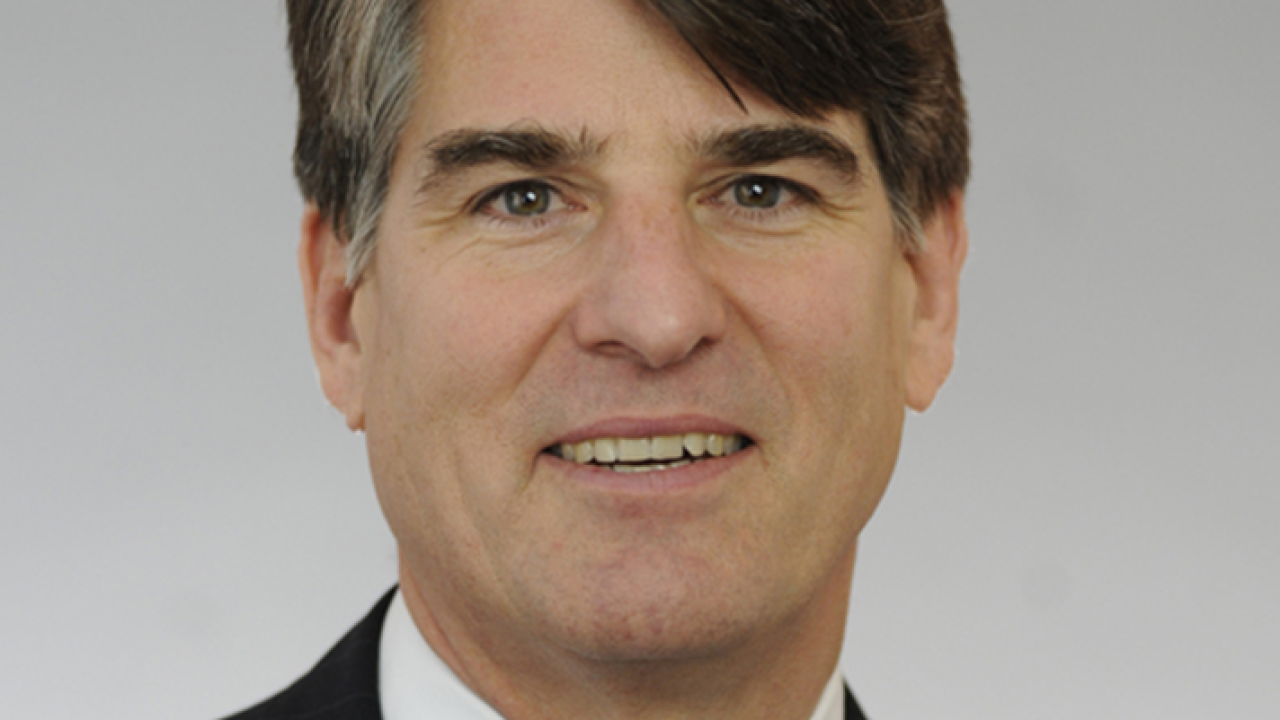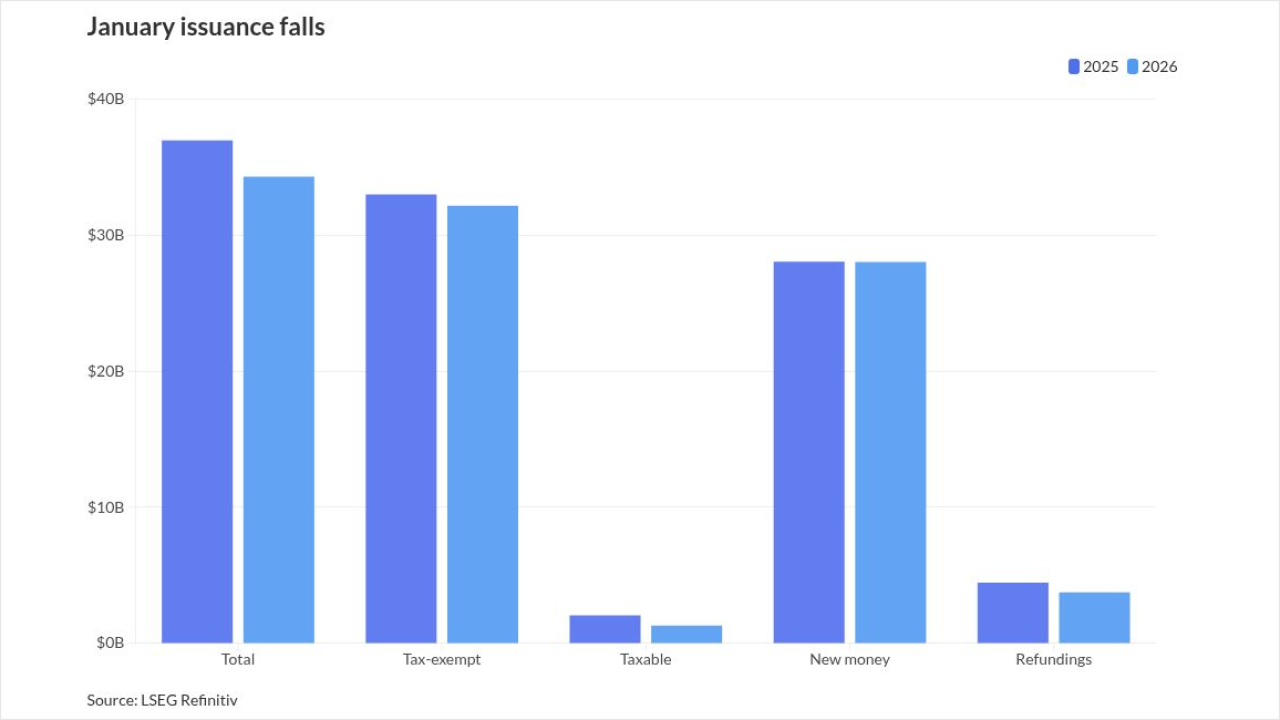CHICAGO - Chicago's practice of pushing off debt service for cash flow relief, and pressures from a looming $550 million spike in public safety pension payments, undercut its advances in structurally balancing its budget, according to an assessment by the Civic Federation of Chicago.
The local government research organization cited those concerns in a
The city is closing a nearly $300 million gap through targeted tax and fee increases, operating efficiencies, and the elimination of some vacancies. The election year spending plan does not include a sales, gas, or property tax hike.
The budget - which will be voted later this month by the City Council -- also funds higher contributions to the city's laborers' and municipal employee funds under reform packages approved by state lawmakers and continues the city's plan to phase out most retiree healthcare subsidies.
"Mayor Emanuel and his team are continuing to make the reasonable changes and bold decisions necessary to stabilize Chicago's finances," the federation's president, Laurence Msall, said in the report.
"Two issues, however, threaten to erase all recent progress: the pension funding crisis and the administration's continued use of borrowing for operations through the issuance of refunding bonds," Msall wrote.
The city has pressed unions and state lawmakers to no avail so far to overhaul its police and fire funds. Under a 2010 law impacting all local government public safety funds they are required to shift to an actuarially based payment in 2016. To meet the deadline the city would need to increase its property tax levy by the end of 2015 but the proposed budget does not address the spike.
"This change, even without considering increased contributions to the city's Municipal and Laborers' funds, would require a significant increase in the city's property tax levy, crippling cuts to city services, or both," warned Msall, which stressed the need for the city and state create a reform framework that will stabilize the pension funds at an affordable cost to taxpayers.
The city's general obligation rating has tumbled after it was hit two triple-notch downgrades last year, primarily over its $19 billion of unfunded pension obligations. Its GOs are rated A-minus by Fitch Ratings, Baa1 by Moody's Investors Service, and A-plus by Standard & Poor's. All assign a negative outlook.
The city's debt load poses another major strain to its coffers. When Emanuel took office in 2011, his administration maintained a practice launched by former Mayor Richard Daley's administration restructuring some debt service as it was coming due. Both administrations have defended the so-called "scoop and toss" practice as needed to smooth out the city's debt service structure due to heavy borrowing.
The practice is often used during tough economic times when analysts sometimes overlook its limited use. Chicago's actions have come under heightened scrutiny because it has gone on for years, adds significant interest costs, and limits future borrowing capacity.
"The city's practice of borrowing for operations through the issuance of refunding bonds provides short-term budgetary relief at an extremely high long-term cost," the federation warned, urging the city to develop a strategy for "ending this costly and unsustainable practice."
The city cut about $120.8 million owed in 2015 for debt service by rolling it into a GO offering in March. Payments "were extended for an additional 30 years at an interest rate of 6.3%, leading to an additional interest cost of $228.8 million," the federation wrote.
Principal payments due in 2013 of $41.2 million and in 2014 of $92.6 million were extended for 30 years at an interest rate of 5.4% through a refunding in May 2012, increasing interest costs by $67.1 million and $150.9 million, respectively, the report read.
Between 2004 and 2013, the city's debt rose 50% and debt service as a percentage of total local fund appropriations is expected to reach 23.8% in fiscal 2015, higher than the 15-20% recommended by rating agencies, the report read.
Spreads on a 2040 GO maturity widened last week to more than 200 basis points and Municipal Market Advisors in a recent weekly outlook warned of ongoing volatility for holders of Chicago's GOs noting its pension strains, rising debt, and slow amortization.
Chicago's failure to identify a plan to address its $550 million pension cost spike "positions the city's bonds for future downgrades and spread widening," MMA warned. With the Detroit bankruptcy and Puerto Rico challenges weighing on investor minds, "market participants are increasingly worried about the next large distress situation peeling away investor demand for suspect names."
The report says unlike Detroit, Chicago benefits from its size, vitality, well diversified economy, and growing population and suggests it's within its means to resolve its challenges. "Although further weakening of Chicago's fiscal position is almost certain in the short term, we believe that the city will eventually be compelled to set aside political scruples and tap its resources by raising property taxes to help stabilize its credit position and/or facilitate pension reform discussions," MMA wrote.
In responding to the report, Chicago mayoral spokeswoman Kelley Quinn stressed the positives cited by the Civic Federation. "The Civic Federation's analysis is always a useful and guiding document for the City. While the report notes that we inherited a high long-term debt burden and still have challenges that we are working to address, such as police and fire pension reform, it also stresses that the City has made a significant step in reforming more than half of its pension funds, and that we have made 'bold' and 'difficult decisions' that will have positive long-term effects on the City's financial stability," Quinn said.





